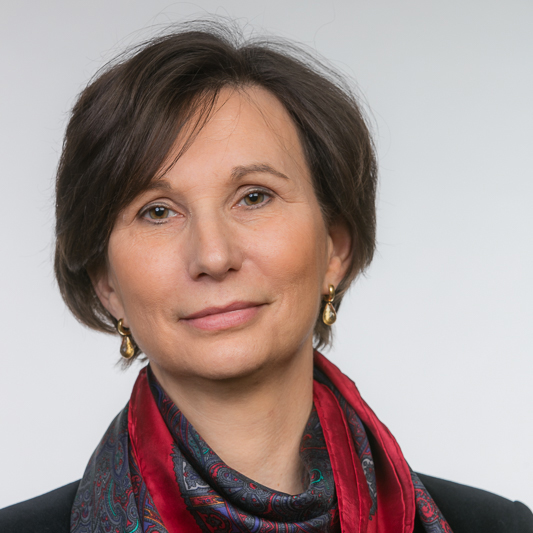Citizens prefer mobile banking applications to get an overview of their balances and to make transfers. They generally feel comfortable using such applications. These are just some of the initial findings of the academic chair on ‘Digital Inclusion’, established in 2021 by the VUB (Vrije Universiteit Brussel) and BNP Paribas Fortis. For four years, the two institutions will join forces to map out whether human rights can still be guaranteed in our digital society, including for those groups that, for various reasons, cannot use digital tools.
“Since the COVID-19 pandemic, digital inclusion has been on the agenda more than ever. Public and private services are being digitised, physical counters are being closed. The digital is contained within every part of our lives. However, 46% of Belgians experience difficulties,” PhD supervisor Prof Ilse Mariën (VUB/imec) argues. The digital vulnerability of citizens is rising as services digitise faster than digital skills are being developed. More and more citizens are also experiencing extreme pressure from technological acceleration. Imec’s digimeter indicates that almost 1 in 3 young people - up 8 percentage points compared to the previous year - feel that technology is evolving too fast.
Following the creation of the chair in 2021, a first study on digital services in the financial sector was conducted. The digitisation level of 25 banks’ services was surveyed. Are services available only through websites or apps? How user-friendly are the apps? Is there still sufficient investment in one-to-one service? More than 45 citizens were also interviewed about how they experience their bank’s services. What do they like, what do they experience problems with, what would they change? The first results are now available.
Initial findings
Those surveyed prefer to pay online rather than in cash. At the same time, they still want access to ATMs, to withdraw cash in case of emergency.
They prefer mobile banking apps to manage their expenses and savings and make transfers. Overall, they feel quite comfortable and familiar with these apps. The digital identification app ‘Itsme’, which allows users to access banks’ digital services, among others, is well established. Citizens find it easy and secure to use, and are largely familiar with it as other companies and governments also use ‘Itsme’.
Nevertheless, there is still room for improvement in the quality of so-called click-call-connect – a service that is equally valid online, by phone or in person. For instance, telephone waiting times are sometimes long and there is not yet enough flexibility for physical appointments. They also think the banking sector should offer its services in more languages and not just in Dutch or French, which is the case for many banks in Belgium.
A unique project
The studies already completed are just some of the elements that make the academic chair particularly interesting. A PhD and in-depth research will also be carried out within the four-year period.
This research will make the link with human rights. Will digitisation jeopardise the right to work, education, care and so on, or will the rights of every citizen continue to be ensured, including for people who, for various reasons, do not have access to digital tools?
About the Digital Inclusion Chair
The Digital Inclusion Chair of the VUB and BNP Paribas Fortis examines whether people’s basic rights are still guaranteed in a digital society. Chairperson Prof Ilse Mariën will supervise Milica Lazarevic’s PhD project in cooperation with co-supervisors Prof Leo Van Audenhove (VUB) and Prof Koen Ponnet (Ghent University).
The research question is twofold:
- How digital is the social norm used in Belgium in different domains of life, such as work, education, services, and so on, and what is the impact of this on citizens’ fundamental rights?
- How digital is the personal norm of Belgians, and how does this impact the use of digital technologies?
“During the COVID-19 crisis, we also noticed as a university how difficult the switch to distance learning was for some students and teachers,” confirms Jan Danckaert, rector of the VUB. “Things like the right to education must absolutely be guaranteed. With this chair, we not only expose the pain points of digitalisation, but also formulate solutions for a digitally inclusive society. The fact that BNP Paribas Fortis is co-investing in this also shows the will of the private sector to be part of the solution.”
Laurent Loncke, General Manager Retail Banking at BNP Paribas Fortis: “Digital inclusion is close to our heart. That is why in September 2021, together with several Belgian government bodies and some 30 companies, public authorities and social organisations, we signed the Digital Inclusion Charter of DigitAll, the coalition for more digital inclusion in Belgium. Naturally, we want to translate our commitment into concrete initiatives. I am therefore pleased that we have established this chair together with the VUB, where researchers have been working on this topic for 25 years. As a result, the university has enormous expertise on the subject. Moreover, the VUB is very open in its partnerships with other Belgian and foreign universities, which benefits the quality of the research. Thanks to the research results, BNP Paribas Fortis will be able to make its services even better and more accessible.”
About the Chairperson
Prof Ilse Mariën is no novice when it comes to digital inclusion. She was a co-founder of DigitAll, the ecosystem around digital inclusion, launched in November 2020 by BNP Paribas Fortis, among others. Moreover, she is responsible for a team of over 20 researchers who study digital exclusion and inclusion from various angles. She’s a worthy head of this chair that distinguishes itself by addressing digital inclusion not only at a Belgian national level, but also by making the link with the existing European and international framework.
Press contacts:
Vrije Universiteit Brussel:
Prof Ilse Mariën
+32 (0)496 28 24 88
Nathalie Vlaemynck | Spokesperon
+32 (0)479 87 23 26


